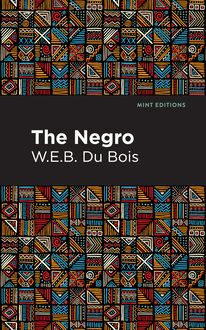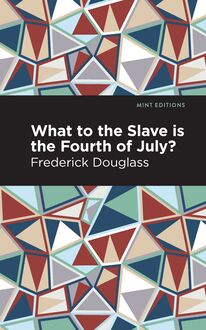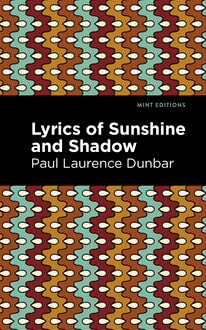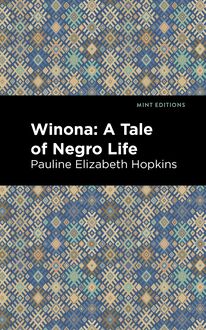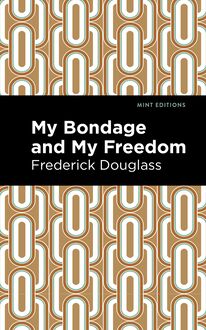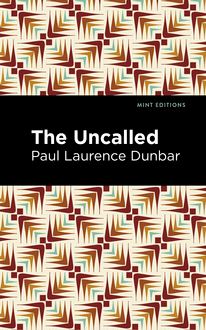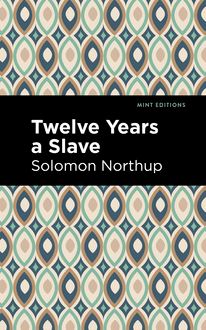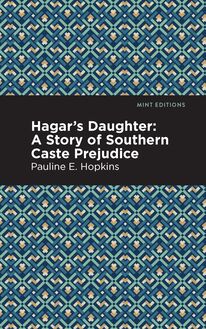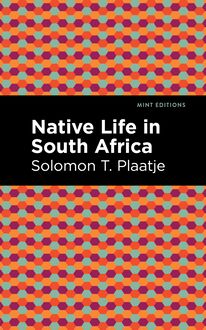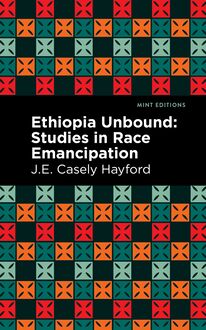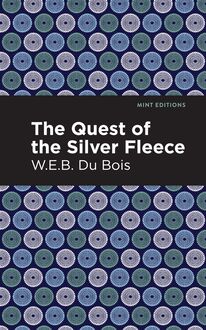-
 Univers
Univers
-
 Ebooks
Ebooks
-
 Livres audio
Livres audio
-
 Presse
Presse
-
 Podcasts
Podcasts
-
 BD
BD
-
 Documents
Documents
-
- Cours
- Révisions
- Ressources pédagogiques
- Sciences de l’éducation
- Manuels scolaires
- Langues
- Travaux de classe
- Annales de BEP
- Etudes supérieures
- Maternelle et primaire
- Fiches de lecture
- Orientation scolaire
- Méthodologie
- Corrigés de devoir
- Annales d’examens et concours
- Annales du bac
- Annales du brevet
- Rapports de stage
La lecture à portée de main
Vous pourrez modifier la taille du texte de cet ouvrage
Découvre YouScribe en t'inscrivant gratuitement
Je m'inscrisDécouvre YouScribe en t'inscrivant gratuitement
Je m'inscrisEn savoir plus
Vous pourrez modifier la taille du texte de cet ouvrage
En savoir plus

Description
Considered the first pan-Africanist work of fiction and among the earliest English novels written by an African author, Ethiopia Unbound: Studies in Race Emancipation is a classic of Ghanaian literature that continues to resonate with modern readers today.
“[T]he Nations were casting about for an answer to the wail which went up from the heart of the oppressed race for opportunity. And yet it was at best an impotent cry. For there has never lived a people worth writing about who have not shaped out a destiny for themselves or carved out their own opportunity.”
With this political statement, J.E. Casely Hayford begins his novel of African emancipation. Semi-autobiographical, it is the story of Kwamankra, a man who, like the author, traveled from Africa to London to become a lawyer. Through dialogue with his English friend Whitely, knowledge of historical and contemporary events in Africa, and his relationship with the lovely Mansa, Kwamankra comes to believe in full independence for his homeland and his people.
With a beautifully designed cover and professionally typeset manuscript, this edition of J. E. Casely Hayford’s Ethiopia Unbound: Studies in Race Emancipation is part of the Mint Editions catalog.
Sujets
Informations
| Publié par | Mint Editions |
| Date de parution | 16 novembre 2021 |
| Nombre de lectures | 0 |
| EAN13 | 9781513217284 |
| Langue | English |
| Poids de l'ouvrage | 1 Mo |
Informations légales : prix de location à la page 0,0400€. Cette information est donnée uniquement à titre indicatif conformément à la législation en vigueur.
Extrait
Ethiopia Unbound
Studies in Race Emancipation
J.E. Casely Hayford
Ethiopia Unbound: Studies in Race Emancipation was first published in 1911.
This edition published by Mint Editions 2021.
ISBN 9781513218281 | E-ISBN 9781513217284
Published by Mint Editions®
minteditionbooks.com
Publishing Director: Jennifer Newens
Design & Production: Rachel Lopez Metzger
Project Manager: Micaela Clark
Typesetting: Westchester Publishing Services
To the Sons of Ethiopia
The World Wide Over.
“Do not believe that you know a people if you have not ascended to their Gods.”
—M. E DGAR Q UINET
C ONTENTS A G LOSSARY I. A N E THIOPIAN C ONSERVATIVE II. S OWING THE W IND III. L OVE AND L IFE IV. L OVE AND D EATH V. I N THE M ETROPOLIS OF THE G OLD C OAST VI. T HE W ORLD , THE F LESH AND THE D EVIL VII. S IGNS OF E MPIRE : L OYAL H EARTS VIII. A M AGISTERIAL F UNCTION IX. T HE Y ELLOW P ERIL X. T HE B LACK P ERIL XI. O N “T HE G REAT N ORTH W ESTERN ” XII. A L EADER OF S OCIETY XIII. R EAPING THE W HIRLWIND XIV. T HE B LACK M AN’S B URDEN XV. A S IN A G LASS D ARKLY XVI. R ACE E MANCIPATION —G ENERAL C ONSIDERATIONS : E DWARD W ILMOT B LYDEN XVII. R ACE E MANCIPATION —P ARTICULAR C ONSIDERATIONS : A FRICAN N ATIONALITY XVIII. R ACE E MANCIPATION : T HE C RUX OF THE M ATTER XIX. A S IMILITUDE : T HE G REEK AND THE F ANTI XX. A ND A L ITTLE C HILD SHALL L EAD T HEM
A G LOSSARY
Omanhin
Head of a state or king, plural Amanhin
Kruba
A vessel for carrying light articles; in this case for collecting money
Nanamu
The gods of the Fantis
Nanamu-Krome
The abodes of the gods
Sanko Songs
Sea Songs
Wonkora wonkor
Without whom not, an idiom signifying Leader of Leaders
Effua Kobi
The Mother of Calcali, King of Ashanti, before the war of 1873
I
A N E THIOPIAN C ONSERVATIVE
At the dawn of the twentieth century, men of light and leading both in Europe and in America had not yet made up their minds as to what place to assign to the spiritual aspirations of the black man; and the Nations were casting about for an answer to the wail which went up from the heart of the oppressed race for opportunity. And yet it was at best but an impotent cry. For there has never lived a people worth writing about who have not shaped out a destiny for themselves, or carved out their own opportunity.
Before this time, however, it had been discovered that the black man was not necessarily the missing link between man and ape. It had even been granted that for intellectual endowments he had nothing to be ashamed of in an open competition with the Aryan or any other type. Here was a being anatomically perfect, adaptive and adaptable to any and every sphere of the struggle for life. Sociologically, he had succeeded in recording upon the pages of contemporary history a conception of family life unknown to Western ideas. Moreover, he was the scion of a spiritual sphere peculiar unto himself; for when Western Nations would have exhausted their energy in the vain struggle for the things which satisfy not, it was felt that it would be to these people to whom the world would turn for inspiration, seeing that in them only would be found those elements which make for pure altruism, the leaven of all human experience.
Again, the art of the caricaturist had by now been played out. It was no longer possible, as far as this race was concerned, to depict the Sultan of Zanzibar, for example, other than as an Ethiopian gentleman, “clothed and in his right mind.”
And there were sons of God among them, men whom the Gods visited as of yore; for even now three continents were ringing with the names of men like Du Bois, Booker T. Washington, Blyden, Dunbar, Coleridge Taylor, and others—men who had distinguished themselves in the fields of activity and intellectuality—and it was by no means an uncommon thing to meet in the universities of Europe and America the sons of Ethiopia in quest of the golden tree of knowledge.
Here, in London, about the time of which we write, were to be seen two young men, walking arm in arm up Tottenham Court Road, and, ever and anon, stopping to examine old dirty books in some second-class bookstall, or some quaint relics in a curiosity shop.
Presently, the twain stopped at a particularly ancient looking bookshop off a by-street leading to Upper Bedford Place. The darker man of the two picked up from the stall outside, a well-thumbed copy of Marcus Aurelius, and began carelessly to turn over the leaves. Suddenly he stopped, and his face grew pensive. Turning to his friend, he said, “Isn’t it funny, Whitely, the remarkable similarity of thought and almost of expression there is between all the great teachers of the past? Listen to what, for instance, Marcus Aurelius says here,” reading aloud a paragraph from the Meditations , which ran thus:
“ ‘Pray not to save thy child, but that thou mayest not fear to lose him.’ Now, you, a Divinity student, what do you make of that?” And without waiting for an answer, he added, “Does it not read very much like the teaching of the holy Nazarene—‘He that findeth his life shall lose it,’ or words to that effect? Now, what I wish to know is what had Jesus Christ in common with Marcus Aurelius?”
“Candidly, Kwamankra,” said Whitely, “I have never given the matter a thought; but since you put the question, and viewing it from a merely debatable standpoint, I am inclined to say that the first question to consider is whether Jesus Christ was man or God.”
Kwamankra raised his eyes in astonishment.
“You do surprise me, Whitely; how can you, of all others, have any doubt upon the matter? I thought you were going up for Orders.”
Whitely appeared confused, but soon regaining composure, he said to his companion, “Let us move on.”
As they sauntered along, Whitely began: “You know, Kwamankra, I can talk better walking, and I will now answer the question you put to me a while ago. At one time I thought of taking Orders, and even now I may do so. But a little evil thing in the shape of an unanswerable doubt haunts me by day and night, and it is even the self-same question I put to you at the book shop.”
“Well, I hardly know what to say, Whitely. In these matters I, of course, regard myself as an outsider. You see we pagans come all the way here to sit at the feet of Gamaliel,” he said with a little mischievous laugh, “and it is uncommonly hard upon us for you to entertain doubts upon the broad questions upon which we seek comparison and light. But I can conceive of no such difficulty as you experience in our system. Jesus Christ man or God?” he repeated slowly and musingly unto himself—then turning somewhat suddenly to his friend, he said, “You know, Whitely, since I learnt your language, not as a vehicle of thought, but as a means of more intimately studying your philosophy, I have been trying to get at the root idea of the word ‘God’; and so far as my researches have gone, it is an Anglo-Saxon word, the Teutonic form being Gutha , which is said to be quite distinct from ‘good.’ Whence then, one may ask, come your ideas, as associated with the fountain of all good, of omnipresence, omniscience, omnipotence? Of course they are borrowed from the Romans, who were pagans like ourselves, and who, indeed, had much to learn from the Ethiopians through the Greeks.”
A turn or two took the young men to Russell Square, and soon they found themselves at Bedford Place. The darker man of the two produced a latch-key, and invited his companion to come in. There was nothing remarkable about the rooms except that they were furnished in the Oriental style. Here and there, at convenient corners, were divans with rich cushions, embroidered in silk, and carpets of leopard skins into which the feet sank as one walked. On the walls were trophies, consisting principally of African weapons. There were to be seen a collection of musical instruments of all descriptions, some so simple as to make one wonder how any symphony could be got out of them. A well-filled shelf, with a plain oak desk, littered with written matter, with some flowers here and there, about completed the outward circumstance of the room into which our visitor was ushered. Pushing well forward the only easy chair in the room, and placing his friend in it with a smile of welcome, he threw himself upon a low seat beside him, touched a bell on a side table, and ordered some refreshment.
“I hope you don’t mind my old-world ways,” remarked Kwamankra. “You know, though I have lived in this country fairly long, off and on, I like to sniff a bit of the African air somehow where’er I go.”
“That is perfectly natural, at least with a well-balanced mind,” correcting himself, said Whitely; “but what I can’t understand is that you don’t seem a bit Eastern in your methods of work. To judge from that pile yonder,” eyeing the notes mischievously, “one wouldn’t think you were over here for a holiday.”
“Oh, that is only a bit of derivative work. You have no idea how interesting it is. Would you like to see what I am doing?”
“How good of you! I should be delighted.”
“I shall soon be finishing now,” said Kwamankra excitedly. “You see I am at the letter ‘Y.’ And that reminds me: you remember a while ago my taking you to task over the feebleness of the idea of ‘God’ in the Anglo-Saxon language. I have just got the corresponding word here in Fanti . It is a big word, so big that you can hardly manage it:—
N YIAKROPON.
Does it convey any meaning to you? How can it? And yet, I can assure you, my friend, it is no mere barbarous jargon. It is the combination of distinct root ideas in one word. It relates back to the beginning of all things visible, and links the intelligent part of man with the great Intelligence of the universe. Breaking up the word into its component parts, as I have done, we have:—
Nyia nuku ara oye pon. That is,
He who alone is great.”
“How very suggestive. Who should have thought it?” observed Whitely, enthusiastic
-
 Univers
Univers
-
 Ebooks
Ebooks
-
 Livres audio
Livres audio
-
 Presse
Presse
-
 Podcasts
Podcasts
-
 BD
BD
-
 Documents
Documents
-
Jeunesse
-
Littérature
-
Ressources professionnelles
-
Santé et bien-être
-
Savoirs
-
Education
-
Loisirs et hobbies
-
Art, musique et cinéma
-
Actualité et débat de société
-
Jeunesse
-
Littérature
-
Ressources professionnelles
-
Santé et bien-être
-
Savoirs
-
Education
-
Loisirs et hobbies
-
Art, musique et cinéma
-
Actualité et débat de société
-
Actualités
-
Lifestyle
-
Presse jeunesse
-
Presse professionnelle
-
Pratique
-
Presse sportive
-
Presse internationale
-
Culture & Médias
-
Action et Aventures
-
Science-fiction et Fantasy
-
Société
-
Jeunesse
-
Littérature
-
Ressources professionnelles
-
Santé et bien-être
-
Savoirs
-
Education
-
Loisirs et hobbies
-
Art, musique et cinéma
-
Actualité et débat de société
- Cours
- Révisions
- Ressources pédagogiques
- Sciences de l’éducation
- Manuels scolaires
- Langues
- Travaux de classe
- Annales de BEP
- Etudes supérieures
- Maternelle et primaire
- Fiches de lecture
- Orientation scolaire
- Méthodologie
- Corrigés de devoir
- Annales d’examens et concours
- Annales du bac
- Annales du brevet
- Rapports de stage
